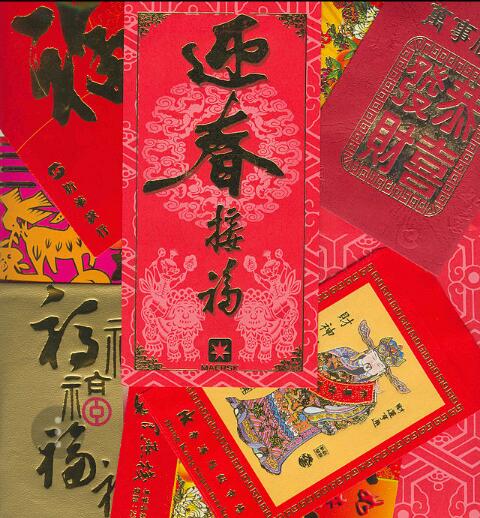
Category : Blogs
Sub Category : Miscellaneous
One of the highlights, or rather, the thing that most people look forward to (including me) during Chinese New Year is receiving the red envelope/packet, which is known as 'ang pao'.
Ang pao is a monetary gift given on special occasions such as Chinese New Year, weddings, graduation, or the birth of a baby. An undisclosed amount of money is put into these red packets and are sealed.
The red colour of the packet symbolizes good luck and is a symbol to ward off evil spirits. Now, for those of you who may not know this, colours play a very important part in Chinese culture for it refers to the certain values that the Chinese culture attaches to colours; like which colours are considered auspicious or inauspicious. In traditional Chinese art and culture, black, red, green, white and yellow are viewed as standard colours. These colours correspond to the five elements of water, fire, wood, metal, and earth, taught in traditional Chinese physics.
Red, corresponding with fire, symbolizes good fortune and joy. Red is found everywhere during Chinese New Year and other holiday celebrations and family gatherings. The red colour of the envelope/packet symbolizes good luck. Red is strictly forbidden at funerals as it is a traditionally symbolic colour of happiness.
Red envelopes or ang pao are given out by married people to the elderly, children and people of single status regardless of age and income. The amount of money contained in the envelope usually ends with an even digit, for in accordance to Chinese beliefs, odd-numbered money gifts are traditionally associated with funerals; with the exception of number 9, as the pronunciation of nine (in Chinese) is homophone to the word 'long', and is the largest digit. In some regions of China, odd numbers are favoured for weddings simply because they are difficult to divide. There is also a widespread tradition that money should not be given in fours (or the number 4 should not appear in the amount), such as in 4, 40, 400 and 444, as the pronunciation of the word four (in Chinese) is homophone to the word death.
At wedding banquets, the amount offered in ang paos is usually intended to cover the cost of the attendees as well as to signify good will to the newlyweds. Amounts given are often recorded in ceremonial ledgers for the new couple to keep.
During Chinese New Year, in Southern China, ang paos are typically given by the married to the unmarried, most of whom are children. In Northern and Southern China, ang paos are also typically given by the elders to the younger under the age of 25 (30 in most of the three northeastern provinces), regardless of marital status, while in some regions, ang paos are only given to the young people without jobs. It is also traditional to put crisp, brand new notes inside the red envelopes. Ang paos are also given during Chinese New Year in the work place from a person of authority (supervisors or owner of the business) out of his own fund to employees as a token of good fortune for the upcoming year.
In the acting world, it is also conventional to give an actor a red packet when he or she is to play a dead character, or pose for a picture for an obituary or a grave stone.
Red envelopes are also used to deliver payment for favourable service to lion dance performers, religious practitioners, teachers, and doctors.
Ang paos are sometimes distributed during the reunion dinner among immediate family members. The money inside these red envelopes contain an amount that reflects good luck and honorability.
The amount of money put in an ang pao vary from a couple of dollars to several hundred per envelope. Here in Malaysia, if you are single (unmarried or separated or divorced or widowed), a child, or an elder person, you actually qualify to 'request' for ang pao. The act of asking for ang pao is called 'hongbao'. A married person would not turn down such request because if they do, it would mean that he/she would be 'out of luck' in the new year. Ang paos collected are then kept under the pillow and slept on for seven nights after Chinese New Year before they are opened - another tradition of the Chinese culture that symbolizes good luck and fortune.
In conclusion, one thing's for sure, there is a lot of money floating around during Chinese New Year - those who give, and those who receive. Also, ang paos are not only limited to be given to the Chinese race only. Over here, if you visit any of your married Chinese friends during Chinese New Year and you fit the description I mentioned above, you are entitled to receive an ang pao from your friend. I am of a Malay race and I had jokingly requested for an ang pao from my optician before Chinese New Year and he told me that he can only give it to me during Chinese New Year and not before. So he's asked me to come and see him this coming Friday to collect my ang pao from him. Guess I've got a 'date' on Friday. Woohoo!!!!



